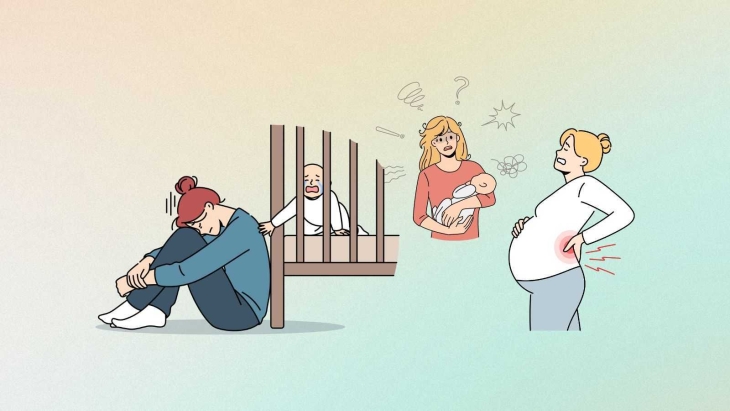Recent Posts
Most Popular
I want to be ready for motherhood: Exploring pre- and postnatal mental health issues

You may be expecting a baby or you may be a new mom. Both are big and significant events in a mom’s life. While most people acknowledge the mental health struggles that giving birth brings, many are still in the dark about the emotional and mental struggles that happen while waiting for the baby to arrive.
Reading about pre- and postnatal mental health issues can prepare a mom for motherhood. With information about how to take care of yourself and how to get help when needed, you can take care of your young one better.
Mental health issues during pregnancy (prenatal/antenatal)
Because of the many chemical and physical changes that happen in a mother’s body and brain during and after pregnancy, these are moments that may put a woman at more risk for developing mental health problems including:
- Anxiety
- Depression
- Mental illnesses (psychosis, schizophrenia, bipolar disorder)
- Generalized anxiety disorder (GAD)
- obsessive-compulsive disorder (OCD)
- tokophobia (an extreme fear of childbirth)
In fact, during pregnancy, statistics show that 13% of women develop anxiety, 12% have depression, or both.
Mental health issues after childbirth (postnatal)
- Anxiety
- Postpartum psychosis
- Eating disorders. This may be influenced by body changes due to pregnancy.
Statistics show that 2 in 100 women develop psychosis after birth (postpartum psychosis), and it can affect women who have no previous history of mental illness.
Being able to talk about the behavioral and emotional changes that you notice in yourself during pregnancy and after childbirth can help you get support and treatment.
Factors that influence a mother to seek treatment
- A woman may feel guilty about having unpleasant feelings. When a woman feels she might be misunderstood for feeling down, she may isolate herself and try to hide her emotions.
It is quite normal for mothers to feel less energetic and sad about a week or two after birth. She tends to get little rest and sleep, making emotions run high and seem overwhelming.
- However, she may encounter problems when her worries become heightened. Mothers who experience postpartum anxiety tend to have deep dread that something bad would happen to the baby, and they become watchful to the point of losing sleep and rest. This fear or worry can extend for a longer period.
- Some moms feel pressured to be just like other parents who are happy after birth or afraid of being judged for not having the energy to “bounce back” or manage the house while taking care of the baby.
- Lacking support (practical, emotional, social) may also hinder a woman from getting help.
Struggling with your mental health during these moments should not be a source of shame. You can start with opening up your feelings to loved ones and asking for help that may be in the form of mental health treatment.
Finding professional help for your mental health during and after pregnancy can give you a chance to benefit from things like:
- cognitive behavioral therapy (CBT)
- Counseling
- Self-care tips, coping tips like how to recognize and manage intrusive thoughts
- Medications if necessary
Know that there is help available so that you can manage the stress and savor the joys of parenting.
Consider using and posting to an online job board to find the perfect match to your healthcare professional job openings!








Comments